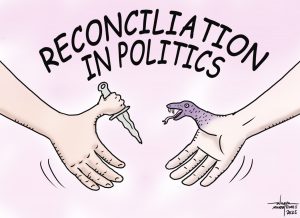 “SO FAR, evidence is this: The fourth industrial revolution seems to be creating fewer jobs in new industries than previous revolutions. According to an estimate from the Oxford Martin Programme on Technology and Employment, only 0.5% of the US workforce is employed in industries that did not exist at the turn of the century, a far lower percentage than the approximately 8% of new jobs created in new industries during the 1980s and the 4.5% of new created during the 1990`s. This is corroborated by a recent US Economic Census, which sheds some interesting light on the relationships between technology and unemployment. It shows that innovations in information and other disruptive technologies tend to raise productivity by replacing existing workers, rather than creating new products needing more labour to produce them.” (Klaus, Schwab, “The Fourth industrial Revolution”, 2016).
“SO FAR, evidence is this: The fourth industrial revolution seems to be creating fewer jobs in new industries than previous revolutions. According to an estimate from the Oxford Martin Programme on Technology and Employment, only 0.5% of the US workforce is employed in industries that did not exist at the turn of the century, a far lower percentage than the approximately 8% of new jobs created in new industries during the 1980s and the 4.5% of new created during the 1990`s. This is corroborated by a recent US Economic Census, which sheds some interesting light on the relationships between technology and unemployment. It shows that innovations in information and other disruptive technologies tend to raise productivity by replacing existing workers, rather than creating new products needing more labour to produce them.” (Klaus, Schwab, “The Fourth industrial Revolution”, 2016).
The Philippines` population is a young population due to our rapid population growth. This means the urgent need to create more jobs in our country now and in the coming years. The emergence of the 4th Industrial Revolution in the World will surely disrupt the employment situation worldwide. Hence, our socio-economic development planners better anticipate the possible impact – positive and negative – of this new trying phenomenon. The sooner they do this, the better. Hopefully this article will shake them up to action.
First consideration. We are a nation very dependent on Overseas Foreign Employment (OFE). How will the 4th Industrial Revolution (IR4) affect OFE which will certainly impact on our Overseas Foreign Workers (OFWs)?
Second consideration. How will IR4 affect our Local Employment (LE)?
Third consideration. What new industries should we develop and/or innovate locally to create new jobs?
Fourth consideration. How do we attract more Foreign Investment (FI) in our country?
Fifth consideration. How can we effectively address “Development Aggressions” and ensure Sustainable Development in our nation?
Sixth consideration. How can we effectively promote inclusive socio-economic growth with equity in the Philippines?
Seventh consideration., How can we adequately improve our education systems in our country to effectively address the educational needs of our young Filipinos suited to the IR4 era?
Eight consideration. How can we reform our “Patronage Politics” to achieve a truly inclusive political system in our country that will effectively address the challenges of the IR4?
Schwab predicted: “Employment (in an IR4 era) will grow in high-income cognitive and creative jobs and low-income manual occupations, but it will greatly diminish for middle-income routine and repetitive jobs.” This is good news to our OFWs who are mostly domestic helpers and care-givers. He continued: In the foreseeable future, low-risk jobs in terms of automation will be those that require social and creative skills; in particular, decision-making under uncertainty and the development of novel ideas. This however, may not last.” (Robots may later do this job, per Schwab.) “In the Form`s Future of Jobs Report`… surveyed respondents showed the following skills demanded in 2020 according to priority.
Cognitive Abilities
Systems Skills
Complex Problem Solving
Content Skills
Process Skills
Social Skills
Resource Management Skills
Technical Skills
Physical Abilities
Cognitive Abilities tops the list of skills demanded for 2020. Per Webster “cognitive” means “the process of knowing or perceiving”. It is about “mind power”. Hence, quality education for our young people focusing on the development of creative or innovative abilities should be our country’s educational main direction. Of course other new skills must be learned too.
Words of caution from Schwab: “Now faced with a combination of increased complexity and hyper-specialization, we are at a point where the desire for purposeful engagement is becoming a major issue. This is particularly the case for the younger generation who often feels that corporate jobs constrain their ability to find meaning and purpose in life. In a world, where boundaries are disappearing and aspirations are changing, people want not only work-life balance but also harmonious work-life integration. I am convinced that the future of work will only allow a minority of individuals to achieve such fulfillment”. This is about being part of the action and “something bigger than themselves”. This is addressing adequately the WHY of all these things.





